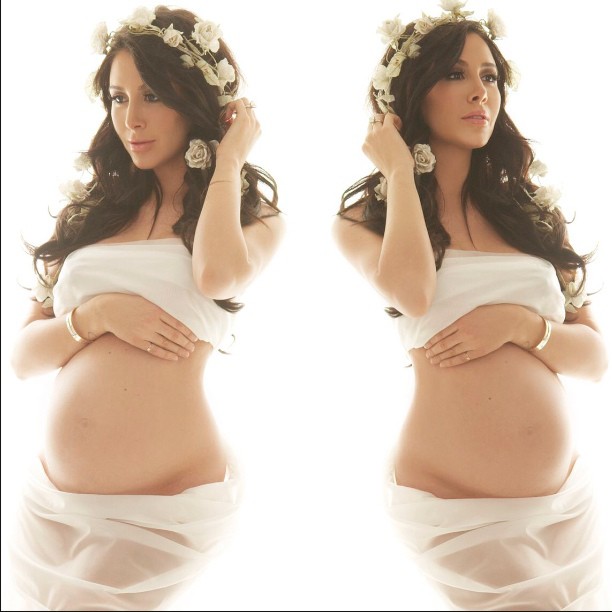Prenatal Nutrition and Supplementation
First of all: If you are expecting, then congratulations!
Now it’s time for you to really get healthy… it’s not just about you anymore! So, where do you start? I suggest that you begin by taking a look at your nutrition and supplementation.
In order to support a growing fetus, mothers-to-be only require an increase of 250-500 calories per day. Typically I recommend 250 additional calories on non-exercises days and closer to 500 additional calories on days when mommies exercise for at least 1 hour. The additional calories will assure that you and baby are meeting your caloric needs while also making sure that Mommy is not putting on excess body fat.
Many foods should be avoided during your prenatal months; some of these foods seem obvious while others, unexpected. Your doctor will provide you with a list of these foods and it should look something like this:
Foods, beverages, and substances to avoid during pregnancy and breast-feeding:
alcohol and caffeine (no more than 300 mg/day)
tobacco
cured/ deli meats, raw eggs, raw seafood
artificial sweeteners
no more than 6 oz of fish per week (completely avoid: shark, swordfish, king mackerel, tilefish)
Empty calories: processed foods that do not convert into usable energy sources
You now need more of particular foods in order to enhance your overall health as well as your baby’s health. Your doctor will provide you with a list of these foods and it should look something like this:
Foods to add during pregnancy and breast-feeding:
Vitamin B12:
important in cell development.
deficiencies often occur in Vegan and Vegetarian Mommies, making supplementation more important
Folate (Vitamin B9):
to prevent neural tube defects
supplementation is most important during the first weeks of pregnancy
dark leafy greens, legumes (beans and lentils), and fortified breads and cereals are all rich in folate
Vitamin D:
Calcium absorption is enhanced when combined with vitamin D
Vitamin D deficiency can lead to low calcium
Calcium is crucial for healthy bone development and healthy infant birth weight
I suggest spending 20-30 days in noon-day sun 2-3 days every week during pregnancy
Calcium:
low calcium is a precursor to pre-eclampsia (hypertension) for mommies
Since calcium needs are increased during pregnancy, vegans should make special efforts to eat extra dark green leafy veggies, bok choy, calcium-set tofu, legumes (beans and lentils), figs, seeds, nuts, fortified milks (non-dairy mils are ok too), and fortified cereals
Iron:
Eat more legumes (beans and lentils), dark green veggies, dried fruits, molasses, nuts, seeds, whole grains, and animal foods (especially well-done red meats)
When eating iron-rich foods, make sure to supplement with vitamin C because this vitamin enhances iron absorption
Zinc:
Zinc plays an important role in growth and is responsible for over 300 enzymatic reactions within the body
deficiencies can lead to congenial malformations
foods rich in zinc include: legumes (beans and lentils), nuts, whole grains, cereals, and animal based foods
Protein:
Daily protein intake should increase by 25 grams/day, especially during the 2nd and 3rd trimesters
I recommend either adding an additional 4 oz of meat per day, 5-6 cooked egg whites, or 1-2 servings of an unsweetened pregnancy-safe protein beverage
This additional protein is necessary for fetal structural development
Fatty Acids:
Because of environmental pollutants, fish is no longer recommended as a primary source of fatty acids for expecting mothers
there are plenty of other foods out there that provide omega-3s
my favorites include: walnuts, flax, hemp, canola oil, herring, algae, green leafy veggies, and seaweed
Most doctors will suggest an omega 3 supplement with EPA and DHA
These fatty acids are crucial for brain development of your child and also reduce the chances of post-partum depression in mothers
Fish liver oil should be completely avoided
My last tip is not to indulge out of the sake of being pregnant. Don’t use the “baby wants a cookie” excuse to allow yourself to eat more then necessary. Pregnancy is a crucial stage that allows you to pack on additional pounds that can be very tough to remove later. If you were unsatisfied with your weight prior to getting pregnant, then it is optimal to stick to unprocessed foods during your prenatal stage.
Here is an idea of how much you should gain during pregnancy. If you are gaining more than the table indicates you should, then it’s time to re-evaluate your nutrition intake and contact me for more help.
Expected Weight Gain During Pregnancy:
Underweight women: 25-35lbs
Overweight women: no more than 15-25 lbs
Women 5’2 or shorter: 10-25 lbs
Stay fit, stay happy, and stay healthy!
-Lauren Kern
Pre and Post Natal Exercise and Nutrition Specialist

